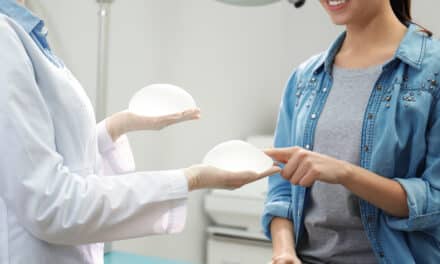As many as one in three breast implants manufactured by Poly Implant Prosthèse (PIP) may rupture, British plastic surgeons report in the Journal of Plastic, Reconstructive and Aesthetic Surgery.
Poly Implant Prothese (PIP) breast implants were filled with industrial – not medical — grade silicone, Between 30,000 to 50,000 women may have received these breast implants in Europe. These implants were never approved in the US. France’s Poly Implant Prothese (PIP) company declared bankruptcy in 2010.
According to the new study, the PIP implant failure rate could be as high as 33.8 percent.
The study included patients who received PIP implants for primary or secondary breast augmentation between January 2000 and August 2005. Results found that 7 to 12 years after implantation the failure rate for PIP implants is between 15.9 percent and 33.8 percent.
All study participants were scanned by ultrasound.
Of 453 patients with PIP implants, 30 had already undergone implant exchange for a variety of reasons, 180 could not be contacted and 19 had undergone implant removal elsewhere. Of those who could be contacted, 47 declined consultation as they had no concerns, and 97 had neither clinical signs nor radiographic evidence of implant rupture and elected to remain under regular review. At that time, 38 had undergone implant exchange after ultrasounds showed evidence of rupture.
If the group of non-responders had no ruptures, the overall rupture rate would be 15.9%. However, it the non-responders had the same rupture rate as those examined, the overall rupture rate would be 33.8%, the researchers report.
It is too soon to make a blanket statement regarding what all women with PIP implants should do. Further research into the nature of the elastomer and gel filler will determine whether all PIP implants should be explanted in the future, the researchers conclude.
As it stands, France, Germany, the Czech Republic and the Netherlands have recommended women with PIP implants have them removed. Britain has stated women who had their PIP implants via the National Health Service could have them replaced without charge. Other countries urge women to monitor their PIP implants on a regular basis.
[Source: Journal of Plastic, Reconstructive and Aesthetic Surgery]


